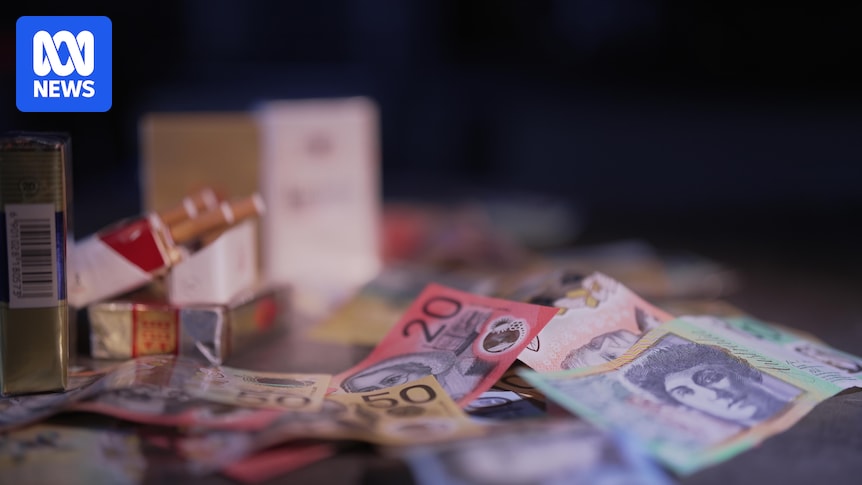
A modest, run-down house in Brisbane, with a couple of motorbikes and a red SUV parked in the driveway, seems an unlikely residence for a tobacco baroness. Yet, this unassuming home is linked to a sprawling network of illicit tobacco stores across Queensland. Among these is the VIP Tobacconist in Kallangur, which was recently confirmed to be selling illegal cigarettes at cut-rate prices, bypassing the hefty government duties that should apply.
The woman listed as the owner of these stores, however, claims ignorance of her involvement. Despite business registers naming her as the proprietor of 14 shops, she insists she only manages one. Her denial highlights a murky world where fake identities are allegedly used to obscure the true operators of these illicit businesses.
The Scope of the Illicit Tobacco Trade
This case is just one example of a widespread and often blatant illegal tobacco trade that is costing the Australian government billions in lost tax revenue. The trade is characterized by its opacity and the involvement of organized crime, sometimes even with the assistance of legitimate businesses. According to court records and investigative reports, the trade is thriving, with illicit products being sold openly in many stores.
Business records reveal connections between these stores and known illicit nicotine suppliers, such as Bilal Al Dilami, who was fined for supplying illegal nicotine vapes. Despite repeated attempts, Al Dilami has remained unreachable for comment. His family name, however, continues to appear in police reports concerning illegal tobacco operations.
Raids and Legal Battles
In December 2022, a police raid on a Deception Bay tobacconist exposed a large cache of illegal nicotine vapes and other contraband. The store, linked to Sam Albion, a figure with a history of legal troubles related to illicit tobacco, was restocked with illegal goods shortly after the raid. Albion, fined for his involvement, remains a controversial figure in the ongoing battle against illegal tobacco.
Meanwhile, the Browns Plains Tobacconist, associated with Albion’s company, has been the target of multiple arson attacks, underscoring the violent turf wars within the illicit trade. These incidents have not only affected the tobacconist but also neighboring businesses, causing significant financial and physical harm.
The Mechanics of the Trade
The illegal tobacco trade is fueled by the high cost of legitimate cigarettes, with duties driving prices up significantly. This has created a lucrative black market, where products are smuggled in creative ways, such as hidden inside fake speakers or inflatable pool boxes. The Australian Taxation Office estimates that billions of dollars in duties are evaded annually due to this trade.
Private ATMs have also played a role in facilitating the trade, offering cash transactions that leave fewer trails for tax authorities. Some ATMs, supplied by major companies, have been removed following concerns about money laundering. However, the issue persists, with some stores using systems like Square to monitor and manage sales discreetly.
Financial Implications and Legal Challenges
The financial scale of the illicit tobacco trade is staggering. In one case, Hasheem Al Deleymi was found with over half a million dollars in cash, allegedly proceeds from illegal tobacco sales. Despite his claims of legitimate business operations, a forensic accounting report revealed significant unexplained funds, leading to his conviction for dealing with proceeds of crime.
Al Deleymi’s case is emblematic of the broader challenges authorities face in curbing the trade. The complexity of the operations, often involving family networks and cross-border logistics, complicates enforcement efforts. Moreover, the penalties for illegal tobacco are often less severe than those for other illicit substances, encouraging organized crime syndicates to exploit this lucrative market.
Looking Ahead
The illicit tobacco trade in Australia continues to thrive, with authorities struggling to keep pace with the ever-evolving tactics of those involved. The trade’s persistence and growth highlight the need for more stringent enforcement and perhaps a reevaluation of the penalties associated with tobacco-related crimes.
As the government and law enforcement agencies work to dismantle these networks, the stories of those involved, from the alleged baronesses to the foot soldiers of the trade, provide a glimpse into a hidden world operating in plain sight. The consequences of this underground economy are far-reaching, impacting public health, government revenue, and community safety.






